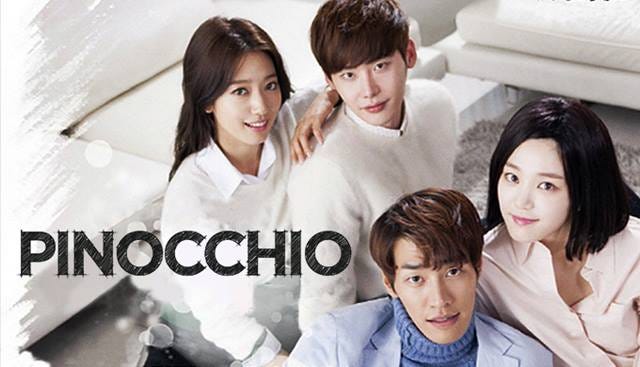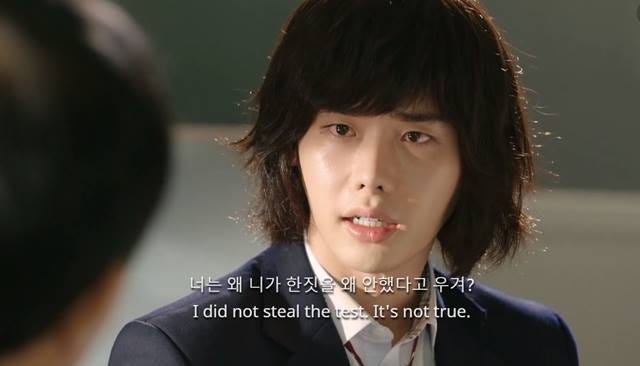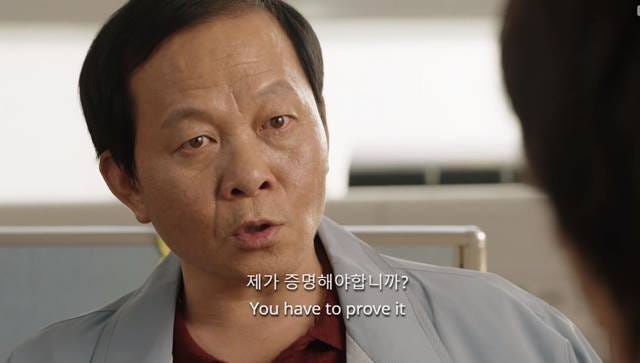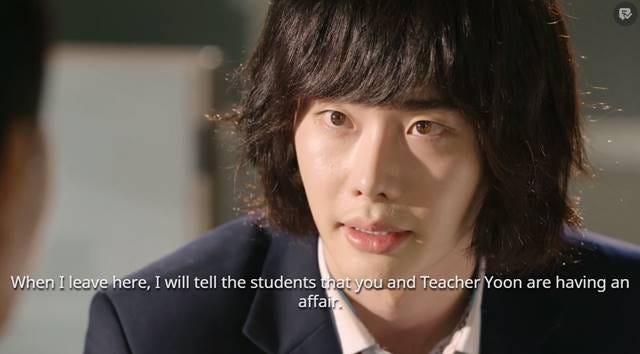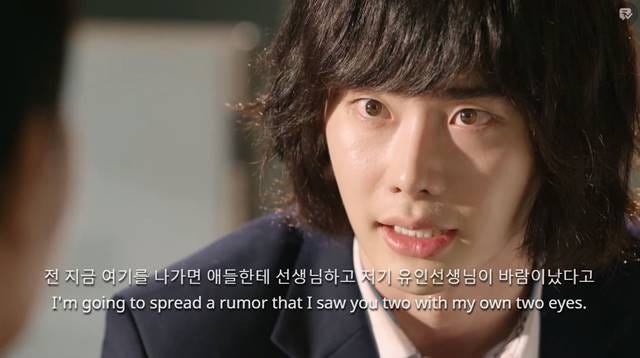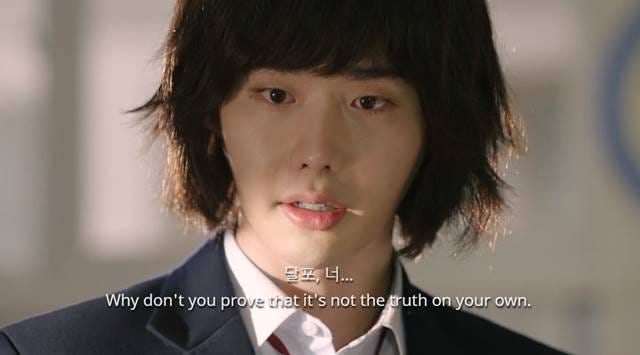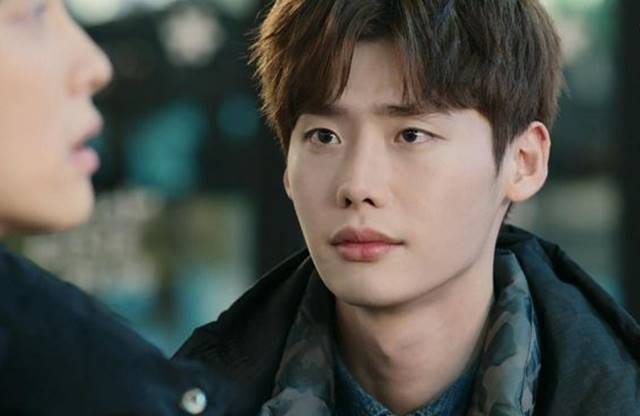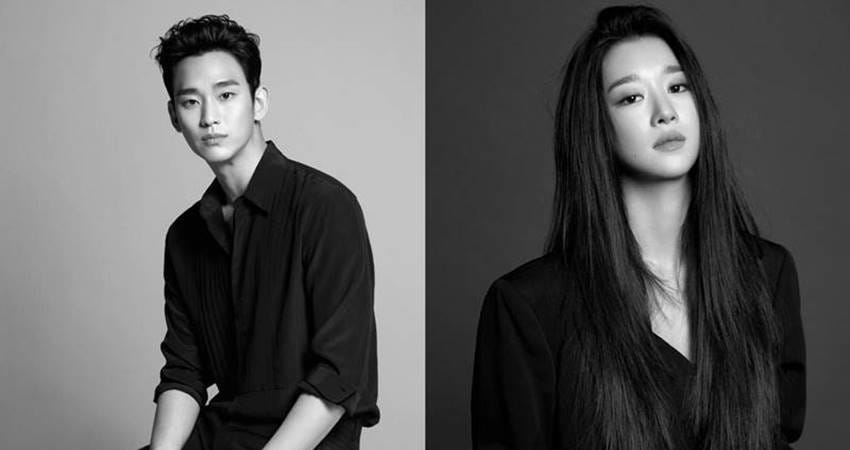"Pinocchio" (피노키오)
Is it acceptable for unrelated children who were raised together to get romantically involved?
NOTE: Free subscribers may read the entirety of this “Pinocchio” review. The only thing you won’t be able to access are the final two paragraphs, which are unrelated to the K-drama.
☆☆½
Choi Dal-Po / Gi Ha-Myung (played by Lee Jong-Suk)
Choi In-Ha (played by Park Shin-Hye)
↑Note: Korean names denote the surname followed by the given name.
I was going to review “Pinocchio” as I would any other K-Drama. But I couldn’t help thinking about Soon-Yi Previn and her relationship with Woody Allen (her husband), Mia Farrow (her adoptive mother, and Allen’s former long-time girlfriend), and the accusations that Allen had sexually molested Dylan Farrow (the adoptive daughter of both Farrow and Allen; and Previn’s sister via adoption).
With that said, “Pinocchio” is the story of a young, orphaned boy named Ha-Myung. Literally rescued from the sea by a kindly old man, he is raised in a household that includes the man’s adult son and that son’s daughter, In-Ha. She is the same age as Ha-Myung. They are raised together and equally loved by the older men in the family. They are in the same classes at school. They eat together. They share household chores.
As the two youngsters grow up into adulthood, they fall in love, but are afraid to reveal their relationship to their parents.
Why? For a lot of reasons. But the primary one being that even though they don’t share a drop of blood, their childhood dynamic was that of siblings (even though they pretend to be uncle and niece. More on that later). They know that pursuing a romantic relationship would affect the entire family and not just their own lives.
In “Pinocchio,” there was no power imbalance between the young couple.
Such was not the case between Woody Allen and Soon-Yi Previn. He was a world-famous filmmaker — 35 years her senior — and she was a much younger Korean adoptee who he felt paternal towards (his words, not mine):
I lucked out in my last relationship. I’ve been married now for 20 years, and it’s been good. I think that was probably the odd factor that I’m so much older than the girl I married. I’m 35 years older, and somehow, through no fault of mine or hers, the dynamic worked. I was paternal. She responded to someone paternal. I liked her youth and energy. She deferred to me, and I was happy to give her an enormous amount of decision-making just as a gift and let her take charge of so many things. She flourished. It was just a good-luck thing. (via NPR)
It is undisputed that Allen and Mia Farrow began dating when Previn was 10; and that Allen took nude photos of Previn in 1991, when she was 21. But the stories diverge from that point.
Farrow says she and Allen were in a relationship when she discovered the pictures and that the filmmaker was a father figure to her children. Allen and Previn maintain that he was no longer dating Farrow and that he had never been a “dad” to Soon-Yi, who was an adult when they began an affair that eventually would lead to marriage (and later the adoption of two daughters of their own). He did admit he was paternal.
But if Allen wasn’t still involved with Farrow as he has maintained, why did he co-adopt Dylan Farrow (whom Mia had adopted in 1985) in 1991 — the same year he took nude photos of Previn? Courts don’t allow “just friends” to adopt a child together.
So the question is: Is it wrong for two biologically unrelated people who were raised as family members to fall in love and have a romantic relationship? If you condemn Allen and Previn, can you condone the two lead characters in “Pinocchio,” just because they are portrayed by attractive and likable actors?
¯\_(ツ)_/¯
There’s a lot going on here, right? So, let’s take a breather and appreciate one of the best scenes ever in any K-Drama!
Ha-Myung (now going by his adoptive name, Dal-Po) is the only student in his high school class to score 100 on a test. A jealous classmate starts a rumor that he cheated and stole the test in advance. The idiot teacher sides with the bully. He tells Dal-Po it’s his responsibility to prove he’s not a liar:
Instead of caving in to the teacher’s abuse of authority (and lack of moral compass), Dal-Po takes matters into his own hands. Two can play this dirty game:
Yesssssssssssssssssssssssssssssssssssssssss! It was excellent how he showed that the teacher’s reasoning was not only unjust, but flawed.
Before we move onto the rest of the review, here’s a visual palate cleanser from Episode 8 to help clear out memories of that fugly wig Lee Jong-Suk had to wear for the earlier episodes:
OK, here we go.
After a horrific fire that led to the deaths of all the firefighters on duty, Ha-Myung’s family is ostracized. The body of his father — the captain of the fire department — wasn’t found with the others and the press starts spreading rumors that he had escaped and gone into hiding. Neighbors shun the family, pelting eggs at Ha-Myung and his older brother, Jae-Myung. Grocers refuse to sell merchandise to their mother. When Jae-Myung doesn’t return home one night, their mother takes Ha-Myung to a cliff and the two commit suicide.
However, Ha-Myung is rescued by Gong-Pil, an elderly man, who convinces himself that the boy is his son, who died decades ago. Because he is all alone, he goes along with the old man and lives his new life as Dal-Po. Though he is extraordinarily intelligent, he pretends to be dense (as Dal-Po was) so that his new father doesn’t realize what’s happening.
A few months after Ha-Myung’s adoption, Gong-Pil’s younger son — Dal-Pyung — moves back home with his daughter, In-Ha. Though skeptical at first, the father and daughter play along, calling Dal-Po 형 (older brother) and 삼촌 (uncle), respectively. However, Dal-Po and In-Ha’s relationship is more akin to siblings, given their similar age.
There are several subplots going on (a chaebol’s son who falls in love with In-Ha; and In-Ha’s estranged relationship with her TV anchorwoman mother, whose distorted reports on Ha-Myung’s family caused their demise), but none of those storylines had me questioning my own sense of morality as how I viewed the romance between In-Ha and Ha-Myung.
At times, I found myself rooting for their relationship, even though it bothered me that they grew up as family members. The writers were so convincing of all the reasons why it was OK, that I wanted to believe it, too. And since there was no predatory, “dirty old man” factor like Woody Allen had going against him, it seemed almost OK to want the two of them together.
Mild Spoiler Alert: Near the end of the series, Ha-Myung’s father says that he is going to have his adoption nullified so that he and In-Ha can get married. Yes, legally that would remove Ha-Myung from the family tree. But it still doesn’t change the fact that he and In-Ha grew up together as family. I wish that the writers had taken a more nuanced and difficult approach and given them a different type of ending. With a little tweaking, it would’ve been possible to have them remain in each other’s lives, but with different partners (or none).
I really enjoyed so many elements of this series. Lee Jong-Suk showed some powerhouse acting, especially in the scene where he is reunited with his biological older brother. His heart-felt tears almost made me break down myself. His leading lady proved to be his equal in every way, but we’ve come to expect no less from Park Shin-Hye. And as Ha-Young’s adoptive father (and In-Ha’s biological grandfather), Byun Hee-Bong was absolute perfection with his impish laugh and the sad look in his eyes when he softly revealed that he knew Ha-Young wasn’t the his Dal-Po, but he didn’t want to lose him.
In-Ha’s mother plays the villain for much of the series. We learn later that she wanted to be a whistleblower and report on the corruption that her news station and its benefactors wanted her to cover up. But she allowed herself to be convinced that doing a favor for a powerful chaebol would allow her to report freely and expose other injustices in the future. Of course, what it really meant was that one dirty deed kept her tied to corruption for the rest of her career. As she admits to herself, she chose to lie and convinced people it was the truth, because she was such a good liar.
Korean Arm Grab: People don’t show a lot of skinship in South Korea. And yet this type of grabbiness, which I view as borderline abusive, is accepted and romanticized. Why is the Korean Arm Grab — where the man roughly grabs and jerks the women around by her arm — such a part of K-Drama culture?
The male characters do this all. the. time. to show their love and affection for the women they love and want to protect. It’s gross and inappropriate; and it teaches young girls and boys that this is acceptable — and even romantic — behavior.
It’s not. It takes away from the woman’s ownership of her own body and her own free will. And honestly, I’m waiting for a scriptwriter to write a scene where the woman dropkicks the man when he does this.
Airdates: Twenty hour-long episodes aired on SBS from November 12, 2014 to January 15, 2015. (I watched this on Viki.)
ETA: I think that most of us know that in the United States, incest is illegal. And in some states, so, too, are relationships between adoptees and their partners if they were raised together in the same family:
Incest is defined as sexual relations or marriage between people who are closely related, such as siblings, parents and children, and cousins. Some states may also consider it incestuous to have sexual relations or marry someone who is related by adoption. — Legal Match
In South Korea, marriage between blood relatives within eight degrees of relations is prohibited.
That means that Koreans may not marry third cousins — their grandparents' cousins' grandchildren — or closer relatives. — The Korea Herald
But what about adopted children within South Korea? It seems it’s only illegal if they are biologically related. For instance, it’s not legal for them to marry if the siblings are blood related “within the sixth degree of adoptive parents lineage and within the fourth degree of adoptive parents affinity,” according to Article 809 of the Korean Family Law Reform Bill (passed in 2005).
It’s important to remember that until 1997, South Koreans with the same last name who hailed from from the same 동성동본 (or clan) were not permitted to marry.
© 2024 JAE-HA KIM | All Rights Reserved
ICYMI:
° The real loss in "Past Lives" isn't love (Salon)
° Go Away With … Epik High (Tribune Publishing)
° The Sacrificing of Suga (Substack)
° Behind the Scenes of K-pop (USC’s Visions & Voices)
° Go Away With … Hannah Bahng (Tribune Publishing)
° “Unlocked” review
° Go Away With … IVE (Tribune Publishing)
The paid content below is simply a short, two-paragraph anecdote that I’m sharing. It does not have to do with “Pinocchio.”




